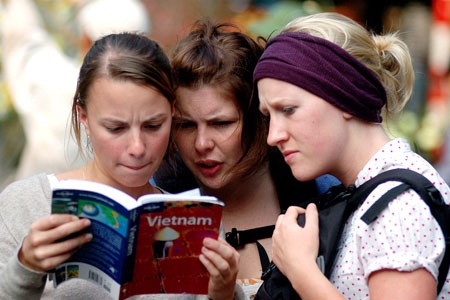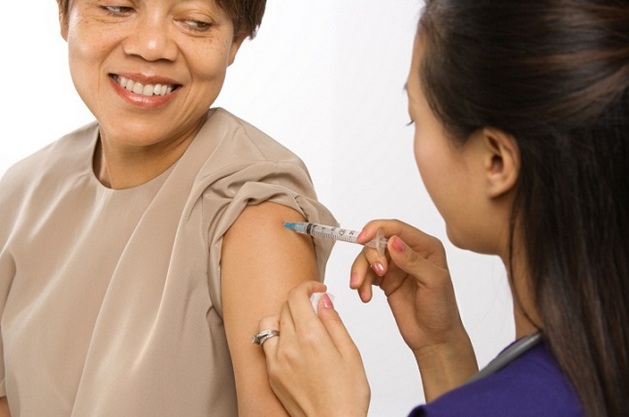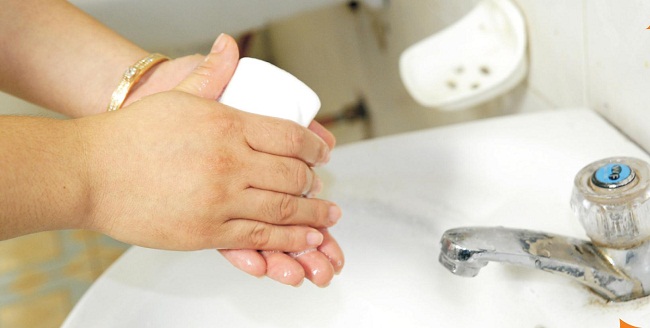Are you planning to travel to Vietnam? We are pleased to present you this article on the health situation and vaccines for Vietnam as well as the necessary precautionary measures in the hope that your trip to Vietnam will be fully successful.
1) Before leaving for Vietnam
Before you leave, you may wish to seek advice from your doctor or an international vaccination center in your country.
Some sources of information:
– French yellow fever vaccination and health advice centers
– Advice to travelers” from the French Ministry of Foreign Affairs.
– Medical Information Committee of the Ministry of Foreign Affairs (CIMED).
Administrative or practical information:
– Maison des Français de l’Etranger : www.mfe.org
– Union Francophone des Belges à l’étranger: https://www.ufbe.be/
Or, you can consult the website of the Vietnamese Embassy and Consulate in your country.

2. Vaccines recommended in Vietnam
– HEPATITIS A (Vietnam vaccine): recommended before leaving for a trip to Laos or Cambodia.
– HEPATITIS B (Vietnam vaccine): everyone can benefit from this vaccine as long as they are at least two years old. It is one of the 3 recommended vaccines for Cambodia, even if it is not mandatory
– DT POLIO (Vietnam vaccine), if your vaccination is more than 10 years old, don’t forget to get a booster before leaving.

– Japanese Encephalitis: Also, if you plan to travel in a rural area during the rainy season in Vietnam (see the article: when to go to Vietnam?), we advise you to get vaccinated against Japanese encephalitis. There is no need to get this vaccine if you are only traveling in the big Vietnamese cities (Additional Vietnam Vaccines)
Vaccines to do in addition for visits outside the main cities:
– Typhoid fever, transmitted by water and food contaminated by faeces, hence a particular attention to drinks and washing fruits and vegetables. Always wash your hands ++++. Vaccine valid for 3 years, to be done 1 month before departure.
– Yellow fever or antiamaril: transmitted by mosquitoes. Be careful to get vaccinated against yellow fever if you are going to stay in the off-the-beaten track areas of Vietnam with nights in the jungle or at the local people’s home, for example, where hygiene conditions are poor. If you only stay in the big cities such as Hanoi, Ho Chi Minh, Hue or Hoi An, the vaccine will not be necessary.
3. Prevention of digestive tract infections
Traveling to a foreign country requires travelers to get used to new ways of life, including food, as they go along.
Food: You are advised to eat freshly cooked food and avoid cold cuts, pastries or dairy products. Vegetables should be washed, preferably with clean boiled water. As for fruits, it is better to peel them for more safety.
Drinks: It is preferable to drink water that has been boiled or bottled, otherwise you must treat it chemically or filter it. It is not advisable to take ice cubes if you don’t know where they come from.
Hands: always wash them before eating (to reduce the risk of infection)

4. Malaria Prevention
Vietnamese malaria, although formidable, is present only in restricted areas: there is no malaria in the big cities, nor in the coastal tourist towns, nor in the rice plains. It is therefore only very exceptionally that the traveler will be confronted with the problem of malaria.
In case you are staying in “at risk” areas, first of all, your doctor must prescribe you the most appropriate medication (destination, type of stay, accommodation, your state of health…) and you must follow these indications seriously (type of medication, start and end dates, rhythm…). In addition, it should be noted that mosquitoes bite, especially at night, and can transmit the disease. Therefore, it is advisable to sleep under an insecticide-treated mosquito net or in an air-conditioned and disinfected room or to use mosquito repellents on exposed parts of the body and to spray your clothes with insecticide.
Note: The risk of malaria is very small but still possible. In case you have any suspicion of malaria (spiking fever, pain, possibly other symptoms) during your trip or even in the days following your return, consult a doctor immediately (within 12 hours).
5. Other preventive measures :
– Personal hygiene
To avoid infectious skin problems, such as fungus, you need to have a rigorous personal hygiene. Always dry the skin.
– Clothing
Wear loose-fitting, clean, airy clothes, adapted to the climate, made of cotton or linen rather than synthetic.
– Insects
The essential precaution is the prevention of malaria (see above). During the day, to avoid the inconvenience of insect bites, and to reduce the risk of inoculation of other diseases (dengue, Japanese encephalitis, etc.), it is necessary to cover arms and legs, especially in the evening, and to use repellents and insecticides on clothing.
– Road safety:
A trouble-free trip is always ideal. For traffic and travel, one must be very careful to avoid road accidents which are the major risk in all countries.
– Sex: This is a way to transmit diseases such as hepatitis B, AIDS and many others. Therefore, it is best to protect yourself or abstain during your stay.
– Safety: Please consult the website: “Advice to travelers” of the Ministry of Foreign Affairs.
– Animals: During visits, you are advised not to be around birds or live poultry (to avoid the risk of avian flu), or dogs, even if they are healthy-looking (to avoid the risk of rabies).
Poisonous substances :
Currently, many tourists tend to trek and therefore put themselves in more “risky” situations, so it should be noted that in the jungle, you can meet snakes and spiders. Therefore, walking in an uncleared forest, in brush or in a dark area at night is not recommended. In case you are bitten or stung, you must clean the wound and go to a medical center as soon as possible.
– Avian flu: For the moment, there have been no cases of human-to-human transmission of avian flu (except for a few suspected cases of this type of transmission). It is recommended that you avoid poultry farms and live poultry markets in areas where this virus has been (or is still) present.
6. Other tips:
Before departure, you must take care of your body and even your teeth.
Bring one or two pairs of spare glasses if you wear glasses.
If you are taking medication: take the medication you will need for a short stay (take your prescription). For a long stay, your doctor or the vaccination center will give you information on local health or pharmaceutical resources.
Leave with your Health Assistance and Medical Insurance contracts for a well insured trip.
7. Return from trip
When you return from your trip, for any health problem (fever, skin lesions, or digestive problems, etc.) in the days or weeks that follow, consult your doctor without hesitation and remind him/her of your trip.
Enjoy your trip to Vietnam!
